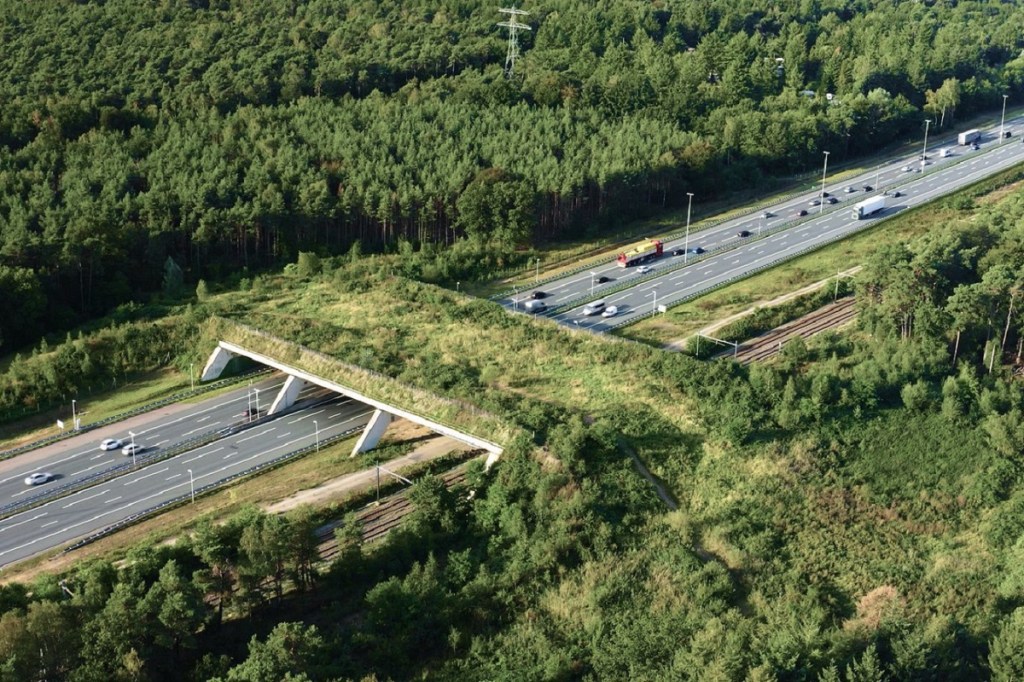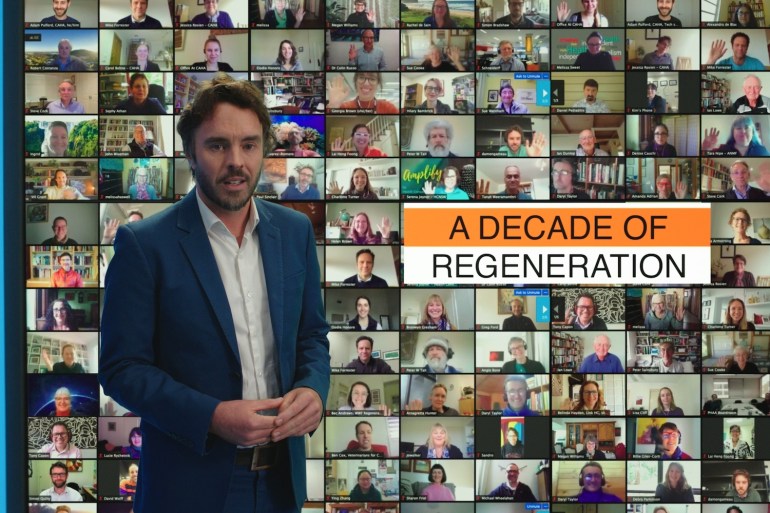Given the impact of extreme weather events and the coronavirus pandemic in the past couple of years, Australians could be forgiven for having a sense of foreboding about what the country could be dealing with at the end of the decade.
It is a perception filmmaker Damon Gameau hopes to challenge through his documentary short Regenerating Australia, which is in the midst of a national tour after premiering in Sydney last Friday.
Set on New Year’s Eve of December 2029, the film takes the form of a news bulletin that looks back at a period in which Australia transitioned to a cleaner, more community-focused economy.
A mix of media personalities and industry experts deliver stories about a high-speed rail network connecting regional areas and cities; the environmental and social effects of large-scale wind, solar, battery and hydrogen projects; and the impacts of landscapes coming to life when regenerative agriculture and reforestation programs combine with Indigenous knowledge and fire ecology.
Produced by Regen Studios, in partnership with WWF Australia, Regenerating Australia features contributions from Kerry O’Brien, Sandra Sully, Gorgi Coghlan, Tim Flannery, David Pocock, Tim Flannery, Larissa Behrendt, Sally Capp, Dominique Hess, and Zali Stegall.
Gameau wrote and directed the film, leading a team including producer Anna Kaplan, WWF head of innovation and impact investment Reese Proudfoot, WWF Australia innovation program lead Carlie Leimbach, associate producer and impact manager Anna Charalambous, development researcher Kim Ingles, production assistant Emma Darling, and associate impact producers, Jai Wright and Leeanne Torpey.
The outcomes featured in the project are based on a four-month interview process, during which a broad cross-section of the public was asked to share their hopes and dreams for the country’s future.
Gameau told IF that while the vision was “absolutely possible”, reliance on fossil fuel exports and a concentrated media landscape were key obstacles to it being realised.
“We actually don’t make a lot of money from many things in this country – there is tourism, obviously; education that brings students in from overseas; and then fossil fuel industry is one of our biggest with exporting coal,” he said.

“We also have one of the top five most concentrated media landscapes in the world.
“Rupert Murdoch owns about 70 per cent of the newspapers that are read in the country every day, but there are other mainstream channels with owners that link to extractive industries as well.
“They’re reluctant to talk about this stuff because it affects their bottom lines.”
Gameau has previously explored future solutions to present issues in 2019 documentary 2040, which considered what would happen if Australia embraced the best solutions already available to improve the planet and shifted them into the mainstream.
The accompanying impact campaign led to one million school students being taught the 2040 curriculum materials and nearly $2 million raised for climate solutions via direct action from audiences.
For his newest project, Gameau is conducting a national tour of free special event cinema screenings, with design workshops, toolkits, and learning resources to then be rolled for communities to develop and implement local projects.
WWF Australia has also established an Innovate to Regenerate funding challenge to assist communities in bringing to life a solution that they see in the film.
Selected projects will have access to subject matter experts, the $2 million ‘solutions fund’ and impact investors looking to scale up projects that deliver social, environmental, and economic benefits to communities around Australia.
Gameau hoped the film would motivate people to become involved.
“I think a lot of people right now don’t understand there is an alternative option because all they’ve heard is the things they have to sacrifice and let go of but they don’t know the gains that could come from giving up those things,” he said.
“If you are at school or in your office and you have an idea, you can apply for that $2 million fund to start making it happen but also to meet other people that are interested in this stuff and are rolling up their sleeves and getting in done.
“As with 2040, we just want to keep building that community of like-minded people because if we get bigger and bigger in that sense, then we can enact bigger change.”
Find out more about how to host a screening of the film here.



